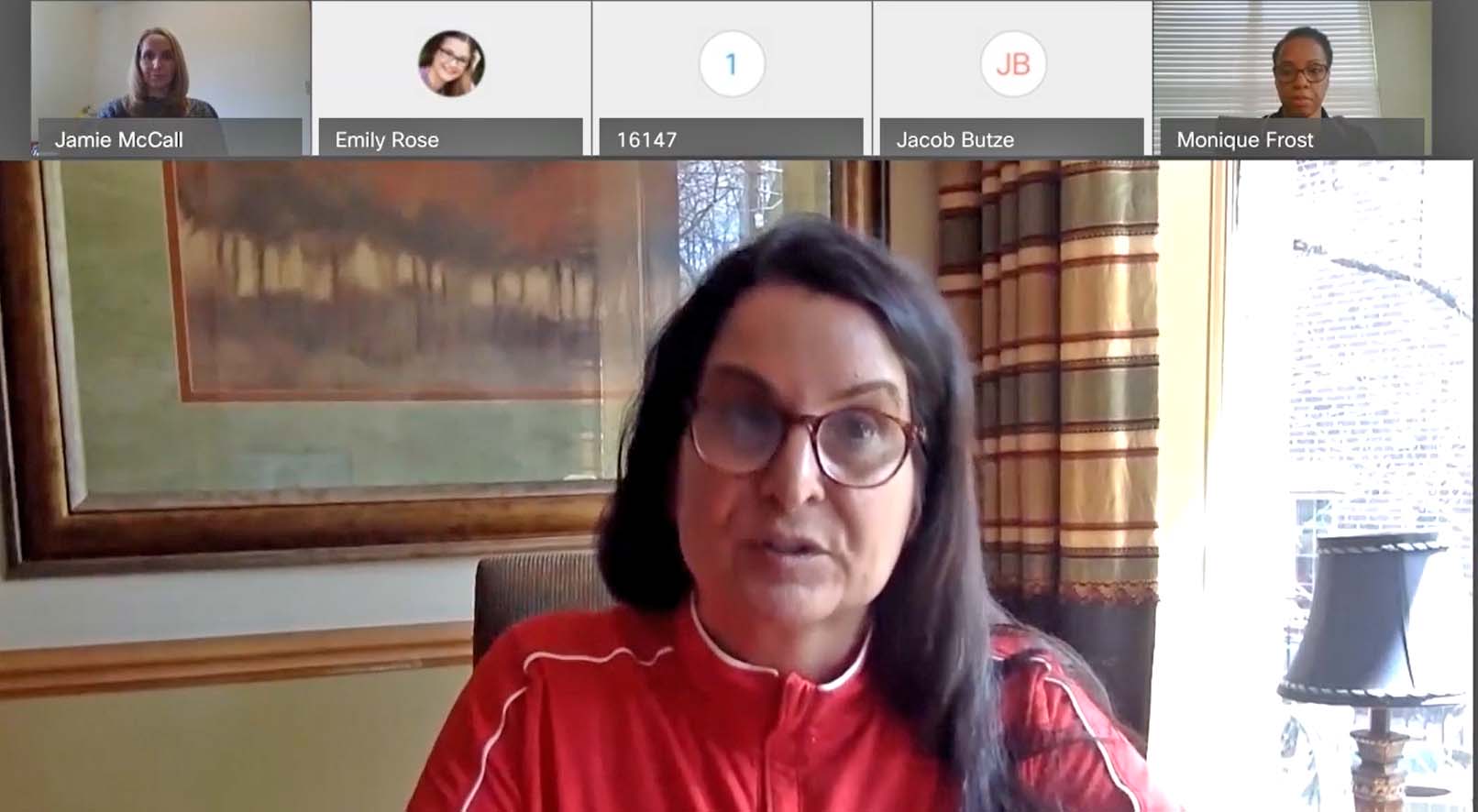Recruiters: Initiative, positivity key in job search amid and after coronavirus crisis


With businesses across the nation shut down or with reduced staff as the coronavirus crisis continues, you might expect that the hiring process for recruiters has changed a lot, if it’s happening at all. But Gallagher nationwide sales recruiter Jacqui DiMarco says she’s still as busy as ever, planning for the time when the crisis has passed.
“I'm still reaching out to candidates and introducing them to Gallagher and what we do, making those arrangements and building the relationships. So when this does change, we're going to have a pool of people,” she explained. “I think a lot of companies are going to do the same thing, because we do feel that because given the strong economy that we had before this pandemic, we are going to be able to bounce back a lot quicker.”
DiMarco, who has more than 25 years of recruiting experience, joined Farmer School of Business associate director for career and professional development Jamie McCall for an online chat with FSB students last week to talk about the job market, the recruiting process, and how the coronavirus has caused changes.
Similar to what the Farmer School’s Kirk Bogard said in a previous chat, DiMarco said that recruiters are going to be asking prospective new hires what they’ve been doing during the crisis. “The question that recruiters are going to ask is, ’What did you do during this time? How did you get through it? Did you sleep until noon?’ The types of things that you could really bring up during the interview process is ‘I learned a different skill. I learned a different technology. I learned a different program,’ she explained. “My suggestion would be to learn something completely different than what you already have in your skill base.”
DiMarco said she’s been taking the opportunity to learn how to code, which she intends to use to help her find potential candidates that may not be on the popular sites such as LinkedIn. “I'm amazed and delighted how positive people are being during this, and that is something that is going to be very helpful after this,” she said.
“I just came across an article this morning on LinkedIn that a survey found 66% of executives said that addressing skills gap related to automation and digitization within their workforces is the top priority of their list, as well as artificial intelligence,” McCall added. “Also, I think the more innovative that you can get in thinking about creating better emergency response and procurement procedures with what's going on will be a benefit.”
DiMarco said that students should embrace LinkedIn if they haven’t already, using the platform to network and connect with alumni or people in the businesses they find interesting. But she said there are also opportunities to be found by going “old school” and talking with family. “If your parents are home and they work, sit down and listen to what they do and ask them, ‘Can I sit with you for a day or two and learn what you do?’” she pointed out. “You’re going to learn, even though you’re not going to get paid, it's a chance to learn. And this is something that you can bring up when you’re interviewing.”
McCall said students should be sure to:
- Keep a positive attitude
- Get involved in something
- Take the initiative, even if it means going out of their comfort zone
- Have patience with themselves
- Network, network, network
“Miamians like to help other Miamians. So use the downtime you'll have after classes to make those intentional connections,” McCall recommended. “It may not bring out something immediately, but certainly in the long run, as you continue to build and brand yourself and your network, it can be pivotal for you.”

